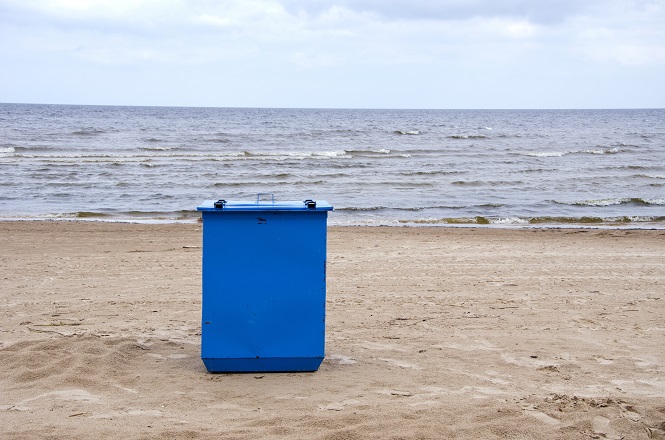 During the summer, the beach is a favored spot to cool off for tourists, locals and wildlife alike. But with so many beach-goers in the summertime, it’s important we’re cognizant of our impact on the environment. It’s easy to be tired after spending a long day out in the sun on the beach and end up forgetting some of your belongings. The beach can also get windy, so it’s not unlikely some of the items you bring with you could get swept away in the cool ocean breeze. Even though beach gear can accidentally sometimes get added to the “plastic soup,” also still commonly referred to as “the ocean,” it doesn’t negate the fact that lost or left items affect local wildlife and the people around you.
There are more than a few ways to combat this problem, but these were some of the ones I found interesting:
During the summer, the beach is a favored spot to cool off for tourists, locals and wildlife alike. But with so many beach-goers in the summertime, it’s important we’re cognizant of our impact on the environment. It’s easy to be tired after spending a long day out in the sun on the beach and end up forgetting some of your belongings. The beach can also get windy, so it’s not unlikely some of the items you bring with you could get swept away in the cool ocean breeze. Even though beach gear can accidentally sometimes get added to the “plastic soup,” also still commonly referred to as “the ocean,” it doesn’t negate the fact that lost or left items affect local wildlife and the people around you.
There are more than a few ways to combat this problem, but these were some of the ones I found interesting:
1. Incentivize people to not leave “stuff” on the beach.
Many beaches have started creating ordinances about leaving trash and other debris on the beach, such as the “leave no trace” ordinance in South Walton, Florida. The area’s beaches enacted this ordinance in order to help save sea turtles but also to keep the beaches looking as clean as possible. Local entrepreneurs have started to capitalize on the issue. Businesses, like Treasure in Paradise, accept used beach gear for store credit. This type of incentivizing of people to trade in old beach gear, rather than abandon it, is a great way to inspire others to recycle!2. Invest in eco-friendly beach gear.
Let’s be honest, most beach gear is made of plastic, and most people have made a sand castle at one time or another. Likely, they used one of those plastic buckets littering the ocean like carrots in a stew to do so. These castles are constructed with the same types of materials that pollute our oceans and harm wildlife. As an alternative, some companies have started to offer biodegradable beach toys; zoë b organic is one of those companies. Its plastic beach toys are biodegradable – taking 2-3 years to break down – contain no BPA and are made of corn instead of petroleum.3. Choose reusable bags over plastic ones.
Let’s not forget, though, that other beach gear tends to include plastic bags, which cities like Ventura are trying to get rid of. The City has a video slideshow full of images showing where plastic bags end up all around the city. People bring chips, drinks and any other snacks they can think of when they go to the beach. While plastic bags might be a convenient and accessible way to transport these snacks, consider using one of the many types of reusable and eco-friendly bags that are widely available these days. These can be purchased online, in most grocery stores or even handed out at countless free events.4. Don’t forget your containers.
While you’re at it, think about the snacks you might be bringing. Glass bottles can endanger other beach-goers if they break, while plastic bottles may be more likely to harm wildlife. Whatever container you’re going to choose to transport your liquid of choice, don’t forget to clean it up or use the trash/recycling receptacles that are at most popular beaches.Another thing to consider is the packaging and the production. In my opinion: Keep it simple. Fruit is a great snack and always biodegradable. Apples and bananas are a couple of my favorites. I won’t list off the entire produce section of the grocery store for fear of boring you, but I promise there are lots of goodies there for you to eat.